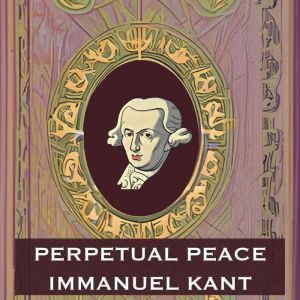Synopsis
"Perpetual Peace" is a philosophical work written by the German philosopher Immanuel Kant in 1795. In this work, Kant argues that peace can only be achieved through a world order based on international law, democratic governance, and the promotion of free trade.Kant believed that war was a result of a flawed system of international relations, where states pursued their own self-interests without regard for the interests of other nations. He argued that in order to establish a lasting peace, a system of international law must be established that would regulate the behavior of nations and prevent them from going to war.Kant also believed that a world federation of nations would be necessary to ensure peace. This federation would be based on democratic governance, where each nation would have an equal say in decisions that affected the world as a whole. Kant believed that this would help to ensure that the interests of all nations were taken into account, and that no one nation could dominate the others.Finally, Kant argued that free trade was essential for peace. He believed that by promoting economic interdependence between nations, free trade would create incentives for nations to work together and avoid war.Overall, Kant's "Perpetual Peace" is a seminal work in the history of political philosophy, and continues to be influential today in debates about international relations and the pursuit of peace.

